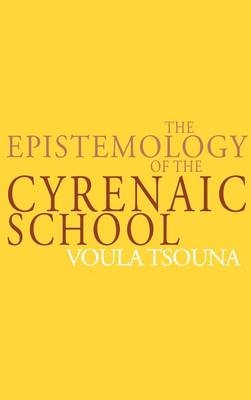
The Epistemology of the Cyrenaic School
Cambridge University Press (Verlag)
978-0-521-62207-3 (ISBN)
The Cyrenaic school was a fourth-century BC philosophical movement, related both to the Socratic tradition and to Greek Scepticism. In ethics, Cyrenaic hedonism can be seen as one of many attempts made by the associates of Socrates and their followers to endorse his ethical outlook and to explore the implications of his method. In epistemology, there are close philosophical links between the Cyrenaics and the Sceptics, both Pyrrhonists and Academics. There are further links with modern philosophy as well, for the Cyrenaics introduced a form of subjectivism which in some ways preannounces Cartesian views, endorsed by Malebranche and Hume and developed by Kant. This 1998 book reconstructs Cyrenaic epistemology, explains how it depends on Cyrenaic hedonism, locates it in the context of ancient debates, and discusses its connections with modern and contemporary epistemological positions.
Preface; Abbreviations; 1. Knowledge and the good life: the ethical motivation of the Cyrenaic views on knowledge; Part I. Subjectivism: 2. The nature of the pathe; 3. The vocabulary of the pathe; 4. The apprehension of the pathe; 5. The criticism of Aristocles of Messene; Part II. Scepticism: 6. The causes of the pathe: objects in the world; 7. Our ignorance of other minds; 8. Some remarks on language; Part III. Subjectivism, Empiricism, Relativism: Cyrenaics, Epicureans, Protagoreans: 9. Cyrenaic subjectivism and the Epicurean doctrine that all perceptions are true: Plutarch, Adv. Col. 1120f–1121e; 10. Cyrenaic epistemology and Protagorean relativism: some considerations; 11. The Socratic connection; Appendix: sources and testimonies; References; Index of names; Index locorum; Subject index.
| Erscheint lt. Verlag | 10.12.1998 |
|---|---|
| Verlagsort | Cambridge |
| Sprache | englisch |
| Maße | 152 x 229 mm |
| Gewicht | 470 g |
| Themenwelt | Geisteswissenschaften ► Philosophie ► Erkenntnistheorie / Wissenschaftstheorie |
| Geisteswissenschaften ► Philosophie ► Philosophie Altertum / Antike | |
| ISBN-10 | 0-521-62207-7 / 0521622077 |
| ISBN-13 | 978-0-521-62207-3 / 9780521622073 |
| Zustand | Neuware |
| Haben Sie eine Frage zum Produkt? |
aus dem Bereich


